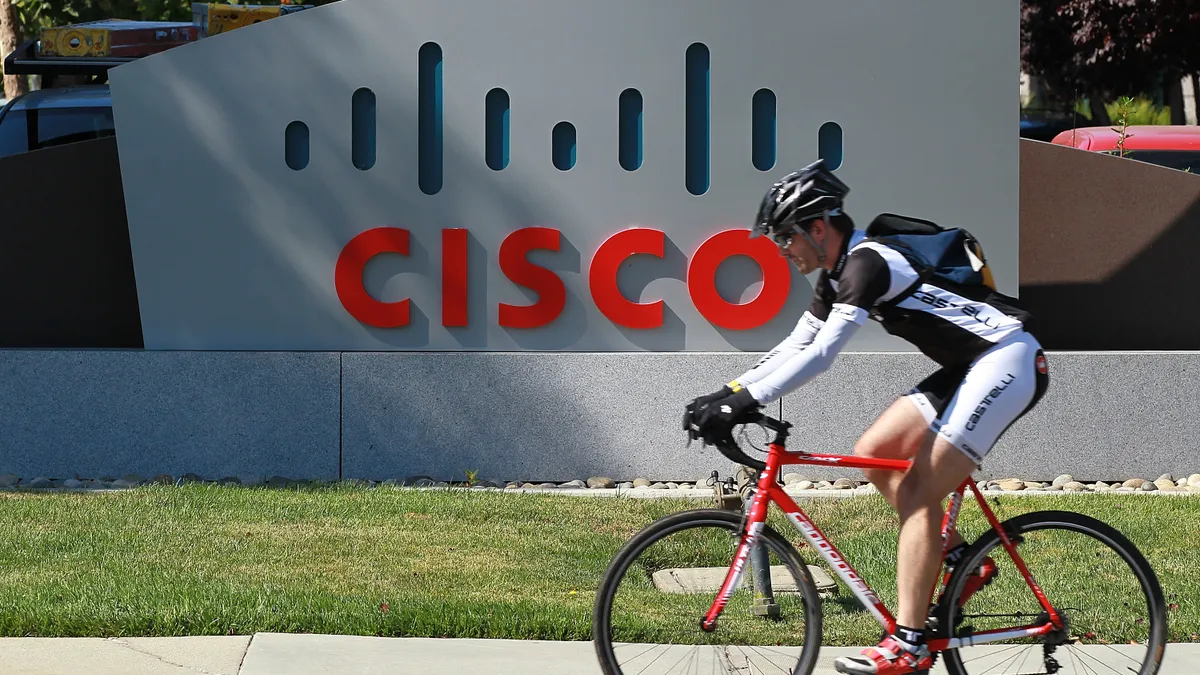While much has been made of the importance of CFO-CIO relationships, the emergence of hybrid work policies is also fostering additional collaboration with human resources executives as well.
As companies launch hybrid work plans, CFOs and CIOs are working more closely with HR leaders to ensure that workplace technologies meet the needs of all employees, executives said Thursday at a preview roundtable for WebexOne, a technology conference hosted by San Jose, Calif.-based technology giant Cisco at its headquarters.
Fran Katsoudas, Cisco’s chief people, policy and purpose officer, explained that the momentum behind a more active role for HR leaders in technology decisions was building prior to the pandemic. The pandemic, however, supercharged the level of collaboration between HR heads and other executives, particularly because security was a joint responsibility between chief people officers, CIOs and CFOs, she said in an interview.
She pointed to an instance where her company chose to shift to a technology vendor more aligned with employee needs as an example of how HR leaders can impart technology user experience insights to other C-level leaders.
“In the past, experience and cost were seen as at odds with one another,” she said. “The CFO now also knows that if the experience is better, the adoption is better, which gives us a better return.”
Early days
Katsoudas described technology that can improve hybrid workplace situations, including a prototype for a bot created by Cisco interns that connects people randomly in virtual spaces, “just like we would run into each other in the lobby.” She also noted that workplace tools are becoming more integrated with management systems, allowing for proactive recommendations based on behavioral insights.
Jennifer Dudeck, senior vice president and chief people officer at the Raleigh, Durham-based software firm Red Hat, said technology discussions between HR leads, CIOs and board members center around finding common ground.
We “have a voice because we represent associates and how we do our work together,” she said.
While HR leaders may be playing active roles in technology decisions at some large firms, it’s still not a trend reflected in most companies, said Jim Lundy, chief executive and lead analyst at Morgan Hill, Calif.-based Aragon Research. HR leaders typically are more concerned with the policy aspects of technology decisions, he added.
Others note that it may be too early to prejudge the outcome of discussions between HR leads, CFOs and other C-suite members on workplace technology because businesses are still in the early stages of hybrid-work implementation.
“I don't know if there is this big pressure point between HR and CFOs until companies actually figure out what they want their workforce to look like,” said Zeus Kerravala, founder and principal analyst at ZK Research. “Companies that have tried to put in place ‘You must come back’ [to the office] and that's been largely rejected by employees.”













